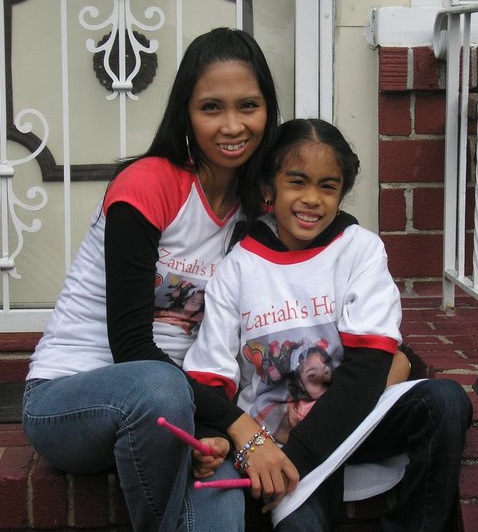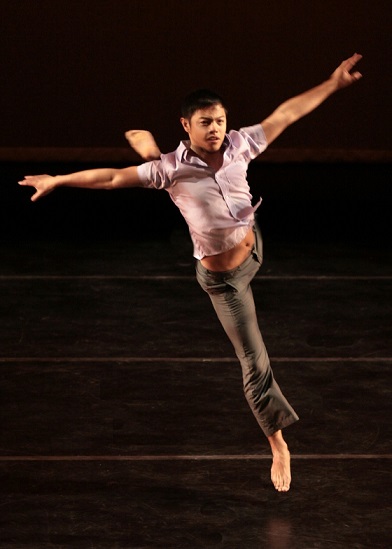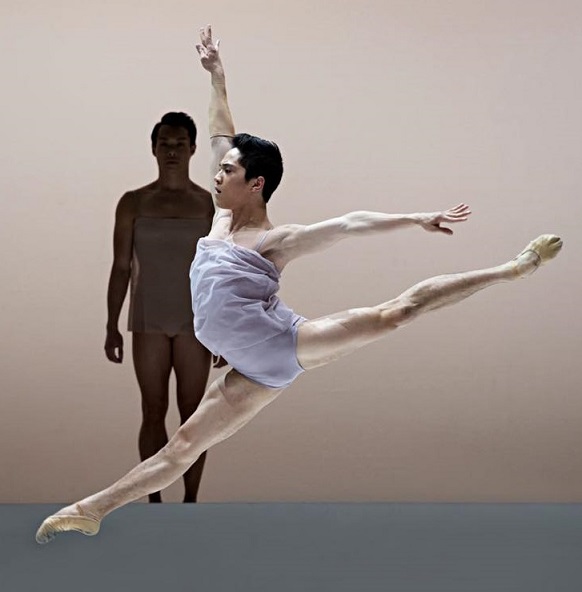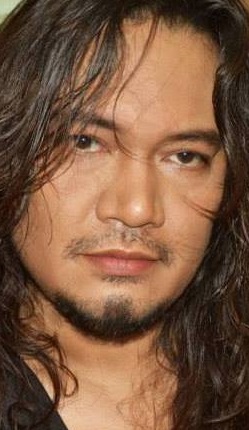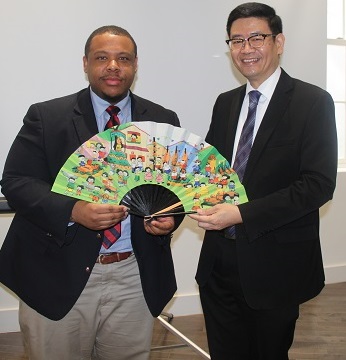Eric Baculinao: First Quarter Storm memories and 48 years in China (Part 1)
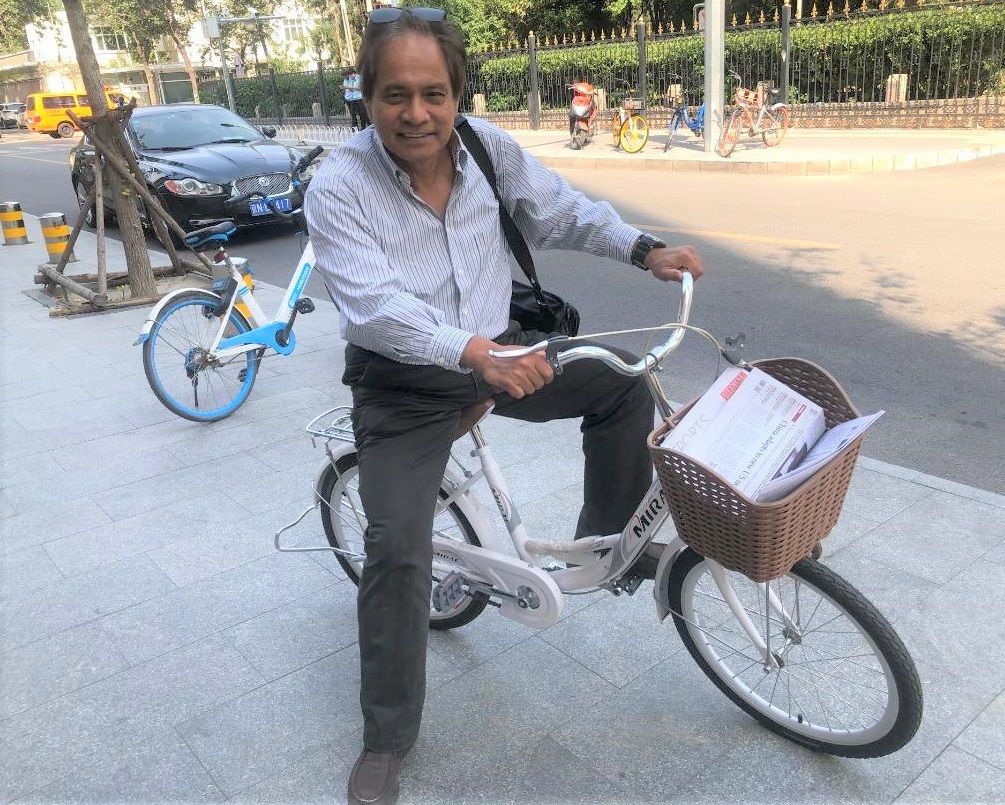
By Cristina DC Pastor
BEIJING – Almost half a century ago, he was the fiery leader of the Kabataang Makabayan. Eric Baculinao has had an interesting odyssey from the barricades of the Diliman Commune in the 1970s to winning an Emmy Award for NBC where he is still the Beijing bureau chief.
Eric, 68, is known in the small but tight-knit Filipino community here as one of the Gang of Three, a trio of student militants who visited China – together with 12 other youth leaders — and found themselves blacklisted when Ferdinand Marcos declared martial law in 1972. With Jaime FlorCruz, then a campus journalist with the College Editors Guild, and Chito Sta. Romana of the Samahang Demokratiko ng Kabataan (SDK), Eric of Kabataang Makabayan (KM) became a reluctant exile.
The three became guests of the Chinese government and it was made clear to them they could stay for as long as they wanted. The first thing they did to survive was to learn the language. At first, Eric had no intention to study Mandarin until he realized he had to, so “we knew what was going on.” They worked in farms where they made little money but picked up the language from farm workers. When Chinese society opened a little bit after the end of the Cultural Revolution, they decided to go to school and continue their studies. He started as a researcher for NBC in the mid ‘80s then became a reporter. He became bureau chief in 2001.
Eric, from Oriental Mindoro, was a Political Science student at the University of the Philippines when he figured in the passionate student activism of the early 1970s. The First Quarter Storm of 1970 saw almost daily rallies against the government of Ferdinand Marcos. The Diliman Commune, which he led as chairman of the U.P. Student Council, happened a year later. For nine days, militants protesting oil price increases took over the administration building protected only by barricades and students massed by the Oblation statue. They seized the printing press and published a rebel newspaper, while radio station DZUP under their control aired the intimate moments of Marcos and actress Dovie Beams.
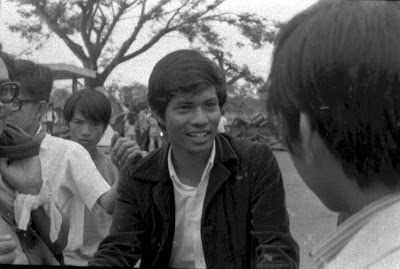
Eric was one of the firebrands of that generation with the teachings of communist party leader Jose Ma. ‘Joma’ Sison fueling the resistance against Marcos and his U.S.-backed government. He spoke out linking Marcos to the three “evils” of Imperialism, Feudalism and Bureaucrat Capitalism. In fact, Eric clutching a megaphone was a recurring image on TV news.
I met Eric four months ago when my husband and I came to live in China. In the following interview – more like a ‘kwentuhan’ about what it was like in the past – he chatted spiritedly about what it was like at the height of student radicalism. In a coffee shop across from the Philippine Embassy in Jianguomen, he shared stories of the important moments and the compelling personalities who figured during that time. His memory was a little fuzzy when it came to the timeline, but the conviction of what he stood for burns brightly within.
After 48 years, he is still a Filipino citizen.
The FilAm: I didn’t know you received an Emmy for your coverage of Tiananmen.
Eric Baculinao: That was a group effort. I had to march with the students for several hours; that was part of our coverage. Tom Brokaw came, Dan Rather was there. Peter Jennings also, I think. Brokaw came after, on June 4 or 6. I had to make sure he would not be arrested.
TF: How did you become an activist?
EB: I wanted to become a lawyer. The College of Law was my target. Those were the days when the valedictorians from public schools could enter U.P. without taking the entrance exams. That was to give opportunity and representation to everyone.
I joined UPSCA (U.P. Student catholic Action), I wasn’t so much political yet. I ran with them in the student council elections. Then I realized I wanted to learn more (about Philippine society). Yung libro ni Joma, yung “Struggle for National Democracy” and “Philippine Society and Revolution,” those were the two books of the Left. UPSCA was the bastion of conservatism. Religious iyan. I was a college councilor when I joined.
TF: Joma’s teachings was an influence?
EB: It provided another perspective, basic analysis for explaining Philippine society. Hindi lang naman si Joma. The Left had many sub perspectives. There’s the old communist party of (Jose) Lava that reflected the Soviet thinking. Joma used to be there. He restarted the communist party in early ‘68.
TF: The First Quarter Storm, what was that like?
EB: I started with SCAUP (Student Cultural Association of the Philippines). It was allied with KM, parang cultural arm pero U.P.-based. KM had many important leaders.
Life in KM was mostly Discussion Groups or what we called DGs. And going to the rallies. In the beginning I was just new, not yet speaking out. Then I began going to chapters to speak. And then at one point I became spokesman of KM. Ang chairman si Nilo Tayag. Jerry Barican and I were in the same batch, Political Science din. Jerry was with the Samahang Demokratiko ng Kabataan (SDK). We were rivals.
TF: What’s the difference between SDK and KM?
EB: Less political and more organizational. The KM was too far Left. The SDK had some appeal among the students.
TF: What’s your recollection of the First Quarter Storm?
EB: Puro demo. Throwing molotovs was part of it. I don’t remember throwing molotovs. The high point of it was February 1971. I was wanted because of the Diliman Commune. There was a transportation strike which was a strike against the oil price increase. Oil meant U.S. because at that time the U.S. dominated the oil industry. The root of the problem was the three evils of Imperialism, Feudalism, and Bureaucrat Capitalism. It’s all there in Joma’s book.
EB: Do you remember the Diliman Commune?
TF: A little bit. Refresh my memory.
EB: We took over the administration building. I remember (Salvador) SP Lopez was sitting down and I said, Mr. President I’m sorry but I’m taking over as president. It was basically U.P. Student Council-led. I was president ‘70-‘71. We took over the University Press. Nelson Navarro was editor in chief of our paper Bandilang Pula. We took over DZUP. The highlight of the U.P. radio was we played the recording of Marcos and Dovie Beams. Ninoy (Aquino) provided the recording. It came from him, and we played it again and again. Only U.P. could play it again and again. No legal broadcasting network would play it. Nobody would dare. Marcos was in power. It’s subversive to be recording a private moment.
SP was a friend, he was a liberal. The Left was friends with the liberals. He didn’t like martial law, didn’t like authoritarian governments. Ninoy (Aquino) came to us, brought food. We had to organize the Physics Department. They were in charge of making molotovs and ‘kwitis.’ (laughs). The idea of the Diliman Commune was to defend the university from the coming troops. Remember the Metrocom? After about eight or nine days we declared it over.
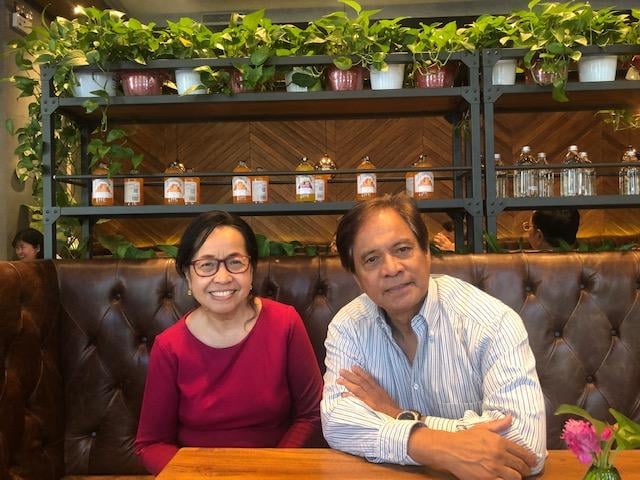
TF: Was your family worried about your safety?
EB: Yeah, they were worried. I was taken. They arrested me and took me to Quezon City. I was released by the mayor at the time. Was it Mel Mathay ba? (Norberto Amoranto was mayor from 1954 to 1976 – Ed.). I was in the subversion list. I had seven to eight charges against me, sedition, even rape.
TF: Rape?
EB: It was command responsibility, because allegedly someone was raped in one of the districts of U.P. during the time.
TF: And that’s why you couldn’t go home because of that list.
EB: We couldn’t go home or we would be arrested.
TF: Looking back. Don’t you think you guys went too far?
EB: No I don’t. Looking back, I really thought I played a role in the sense that I joined a movement and became part of it and played whatever role was assigned to me by the movement.


NEXT: Thoughts on Duterte, and Philippines and China



